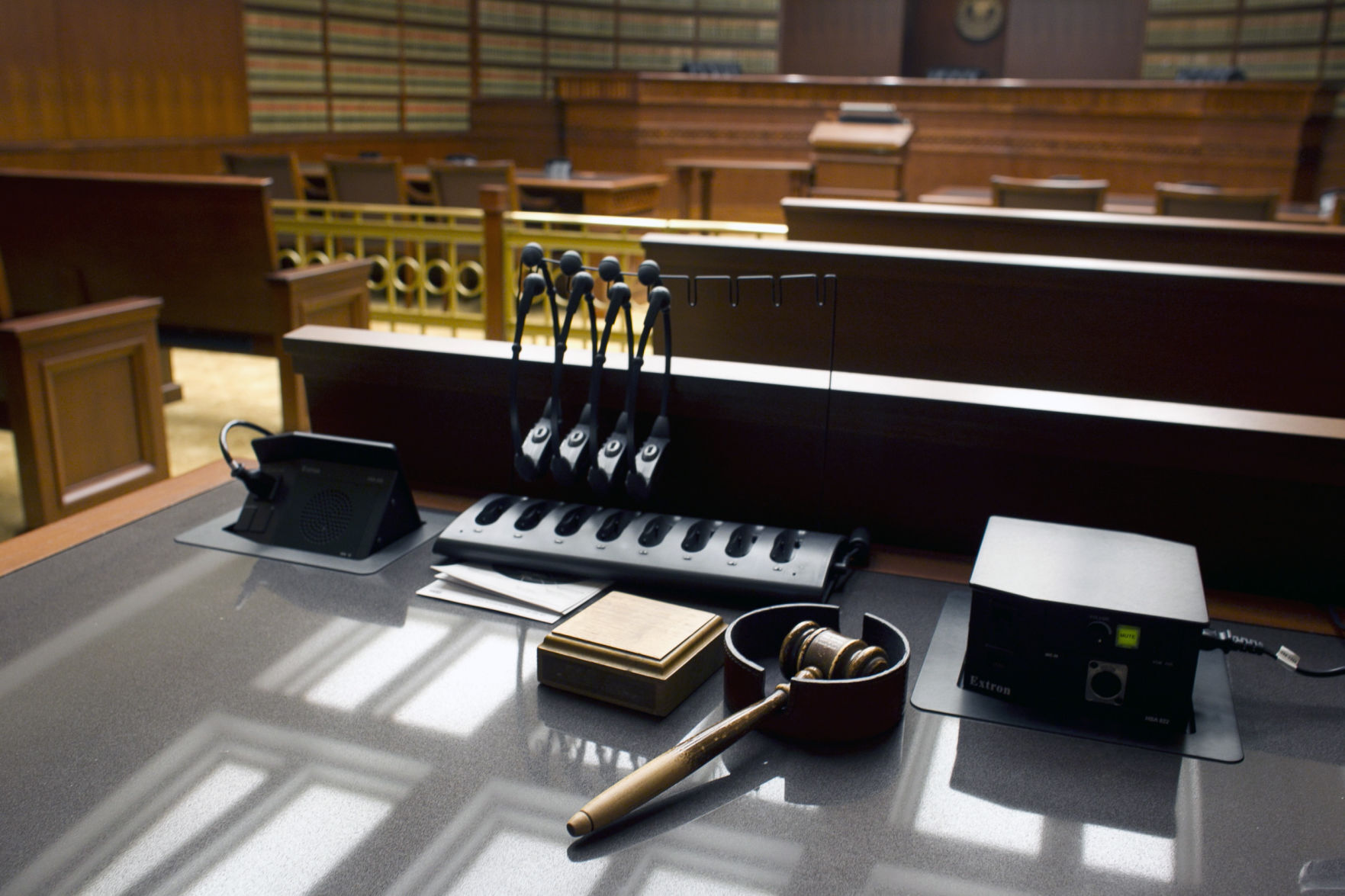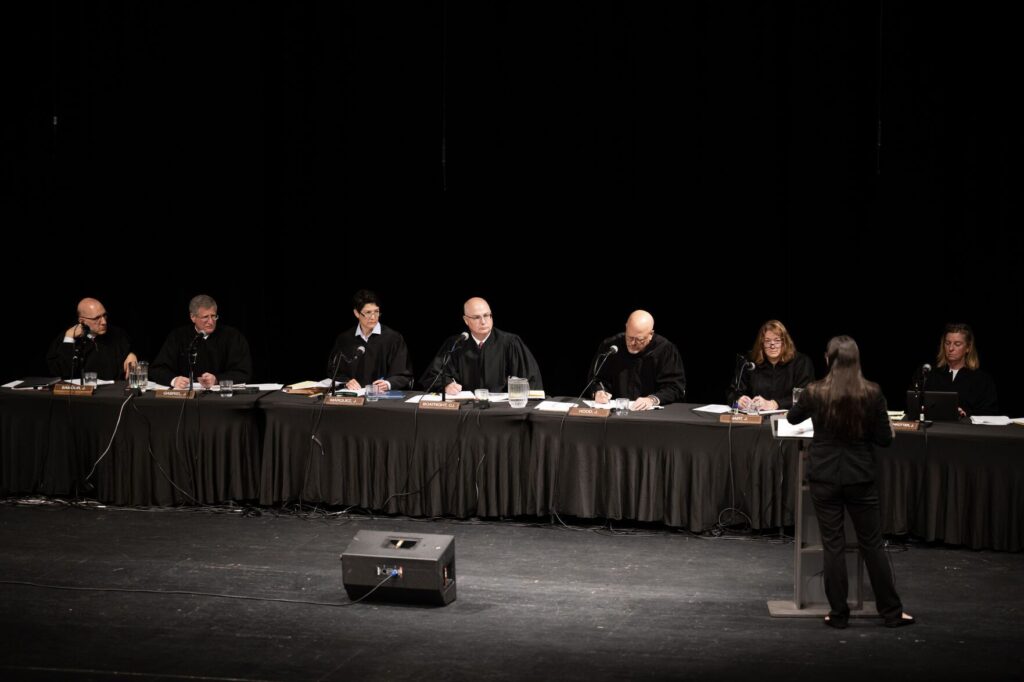Appeals court declines to overturn convictions after jurors had contact with defendant’s family

Even though two Montezuma County jurors had contact with the defendant’s family during trial in a manner that made one juror feel “nervous” and “uneasy,” the state’s Court of Appeals has declined to reverse the convictions.
As part of a criminal defendant’s right to a fair trial, jurors are prohibited from considering information that is not evidence or included in a judge’s instructions. Outside influences upon a jury or prejudicial information not part of the proceedings may serve as grounds for a new trial.
A three-judge panel for the Court of Appeals concluded last week that the interactions of two jurors during the trial of Brian Cory Gallegos did not rise to the level of influencing the guilty verdict.
Gallegos stood trial in 2019 for two counts of felony menacing. He had attempted “suicide by cop” by telling two Cortez officers that he had a gun and yelling at them to “shoot me” after the officers responded to Gallegos’ drunken disturbance at his mother’s home. At one point, Gallegos brandished what appeared to be a gun, but the officers later determined it was only the handle of a propane torch.
After the guilty verdict in the three-day trial, District Court Judge Todd Jay Plewe spoke with jurors. Upon learning that two members of the jury had contact with Gallegos’ family, Plewe summoned them to the courtroom.
A woman identified as Juror 10 recounted that she saw a friend of her son’s when she first arrived at the courthouse. The friend told her he was there “to support (his) uncle,” and introduced Juror 10 to his family.
She did not realize until after she was seated on the jury that she had spoken with Gallegos’ nephew. Juror 10 also shared that after the second day of trial, her son texted her to say, “So, you’re on the jury for (the nephew’s) POS uncle.” The abbreviation stood for “piece of s—.”
The second woman, Juror 8, said she also had an encounter with Gallegos’ nephew. After being seated on the first day of trial, the nephew drove past her in the parking lot.
He “made it a point to roll down the truck window as I was walking to my car and just made it a point to make it clear I was – he knew me,” Juror 8 explained.
“And what message did you think he was trying to send?” Plewe asked.
“Just like an intimidation factor. It felt kind of like he was trying to throw it out as intimidating in a way,” Juror 8 responded. She added that she “felt kind of nervous” and was “uneasy” every time she saw the nephew during trial.
Two weeks later, Plewe denied the defense’s request for a new trial. He believed both jurors’ assertions that their outside contacts had not influenced the verdict and that there was substantial evidence of Gallegos’ guilt. The judge also noted that in Montezuma County, population 26,000, “it is probable that at least a few jurors on every jury will be acquainted with family members and friends of a defendant.”
Gallegos turned to the Court of Appeals. He claimed that the actions of his nephew in the parking lot could have reflected negatively on him, in Juror 8’s mind. Gallegos also described the text message from Juror 10’s son as “highly prejudicial character evidence.”
“The son’s statement that Gallegos is a ‘piece of s—‘ directly challenged Gallegos’ character, tarnished his credibility, and denied Gallegos the opportunity to respond or defend the accusation,” Deputy State Public Defender Taylor J. Hoy wrote to the appellate court.
The attorney general’s office admitted that the nephew’s contact with Juror 8 was inappropriate, but reiterated that it had not affected her decision in the case. As for the text message, the government claimed the sentiment aligned with what Gallegos’ own lawyer had said about him to the jury: “Mr. Gallegos, while drunk and sad and suicidal and in despair, made some stupid mistakes.”
The Court of Appeals panel agreed, concluding the text message did not contradict Gallegos’ defense that he had not knowingly menaced the police officers. Like Plewe, the panel also believed Juror 8’s statement that her interaction with the nephew had no effect on her decision in the case.
The panel similarly rejected Gallegos’ other ground for appeal, that his felony menacing charges penalized the same conduct – more harshly – as the misdemeanor offense of disorderly conduct. The appellate judges disagreed with that argument, explaining that disorderly conduct requires someone to only cause alarm, as opposed to threatening serious bodily injury, and also applies to a public place.
“Indeed, were it otherwise, the crime of disorderly conduct would seem to prohibit someone from displaying a deadly weapon in his or her home – for example, by using a rifle or sword as decor – which is an absurd result,” wrote Judge David J. Richman in the March 17 opinion.
The case is People v. Gallegos.














